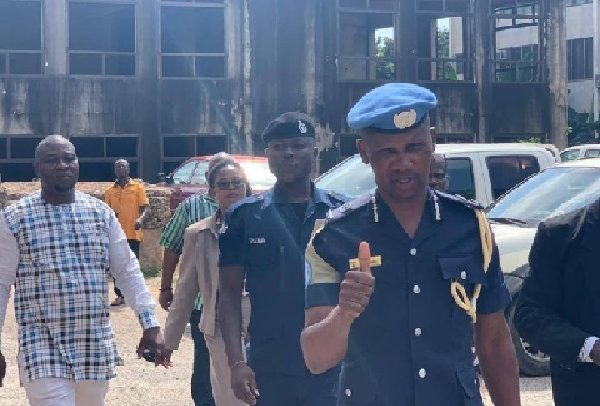ACP Dr. Benjamin Agordzo, the senior police officer among the 10 persons standing trial for allegedly planning to overthrow the New Patriotic Party (NPP) government in a coup, has filed an appeal against an order by an Accra High Court on him to open his defence in the trial.
A three-member panel of the court, presided over by Justice Afia Serwah Asare-Botwe and assisted by Justice Hafisata Amaleboba and Stephen Oppong, on August 15, 2022, ordered the ten to open their defence and explain their side of allegations made against them by the Office of the Attorney General.
The ten made up of civilians, junior and senior military personnel as well as a senior police officer, are facing charges of conspiracy to commit high treason, high treason and abetment of high treason, and were ordered to open their defence after the court in an assessment of the evidence before it held that the prosecution has made sufficient case against them.
The court, in a ruling on a submission of no case, held that ACP Dr. Agordzo, who is facing a charge of abetment of high treason, is said to be on the Take Action Ghana (TAG) platform and indicated that Arab Spring was ripe in the country and was waiting for triggering, hence ought to open his defence to explain what he meant.
But Dr. Agordzo being dissatisfied with the decision of the court has through his counsel, Martin Kpebu, filed an appeal against the order on him to open his defence, arguing that the trial court misdirected itself in law when it ordered him to open his defence when no prima facie case has been established against him by the prosecution.
According to his ground of appeal, contrary to the ruling of the trial court that the law demands him to offer evidence to explain bare allegations made by the prosecution, the law is that the trial court is under a mandatory duty under Section 173 of Act 30 to establish first and foremost whether sufficient evidence had led to establish the elements of the charge against the accused before calling on the accused to open his defence.
Again, the appeal says contrary to the ruling of the trial court that it would be “tedious and burdensome” to deal with each count at the submission of no case stage, the law is that in a summary trial where the judge decides both questions of law and fact, it is for the judge to weigh the evidence and then decide whether the facts proved a prima facie case against the accused on each charge, and to “acquit the accused” on a particular charge on which there is no sufficient evidence.
It further argues that the approach adopted by the trial court of “merely quoting the narrations contained in the evidence-in-chief of prosecution witnesses which had been discredited in cross-examination” was not sufficient to discharge the mandatory duty imposed on the trial court under Section 173 and 174 of Act 30 to determine that the elements of the offence have been proved.
The appeal also avers that the trial court erred when it failed to refer Article 3(3b) of the Constitution to the Supreme Court for interpretation.
BY Gibril Abdul Razak


